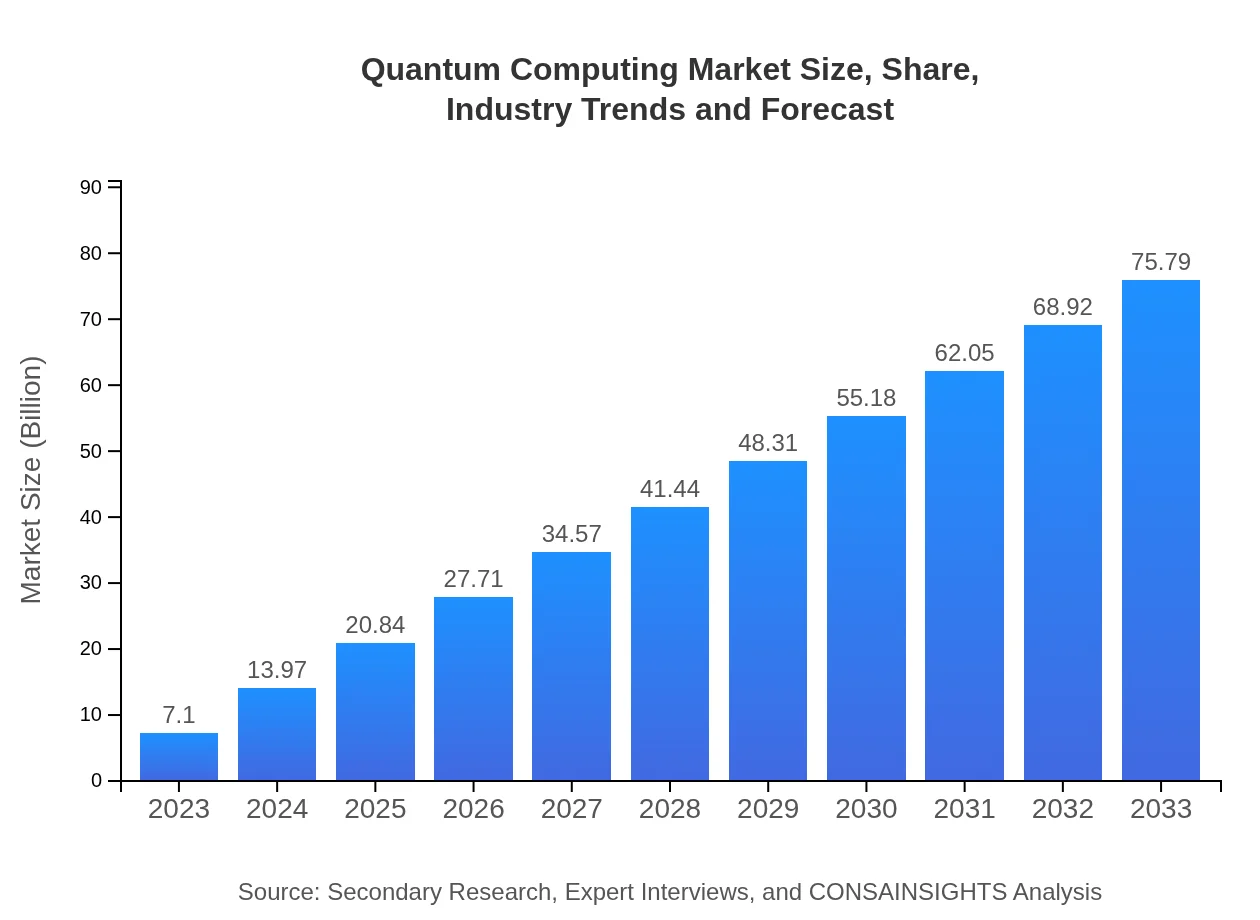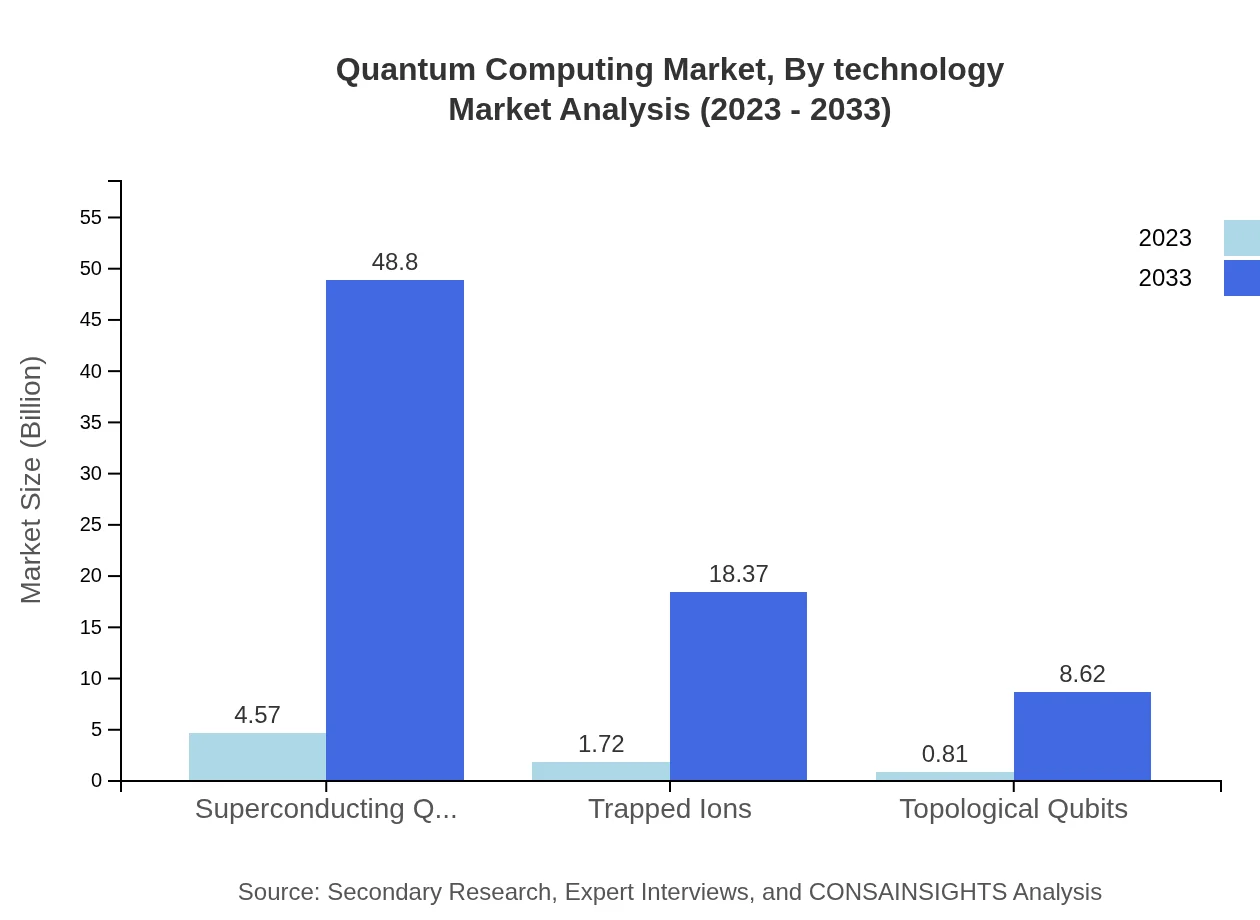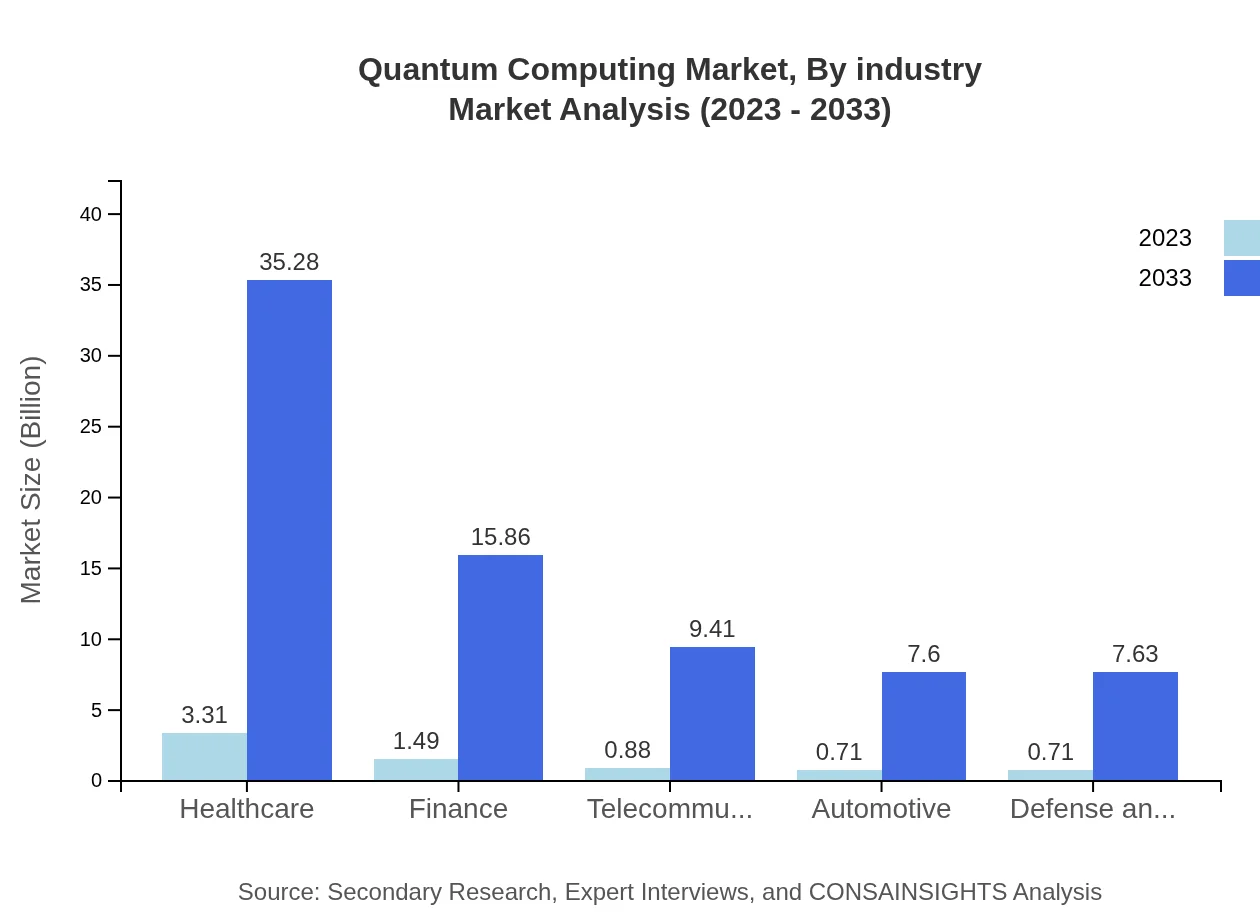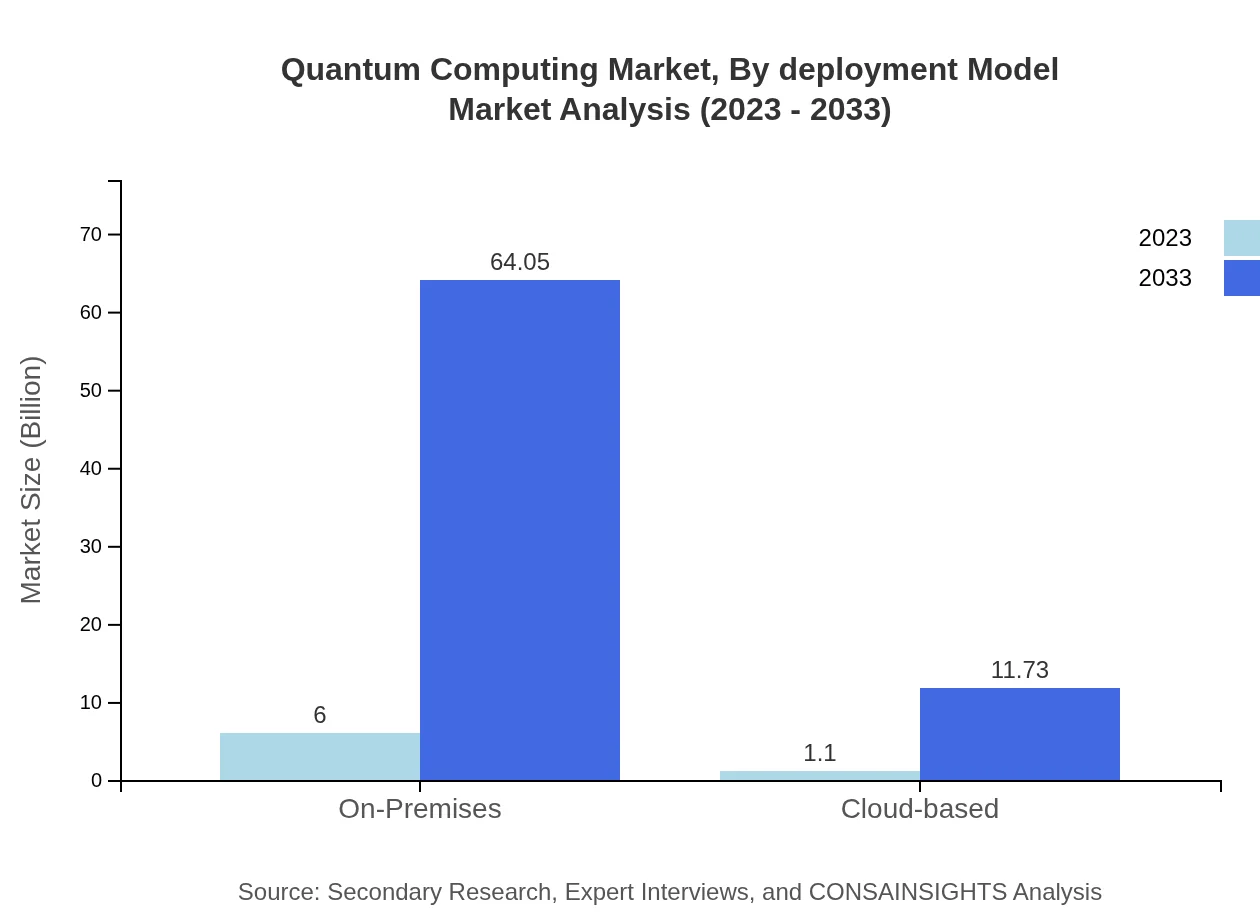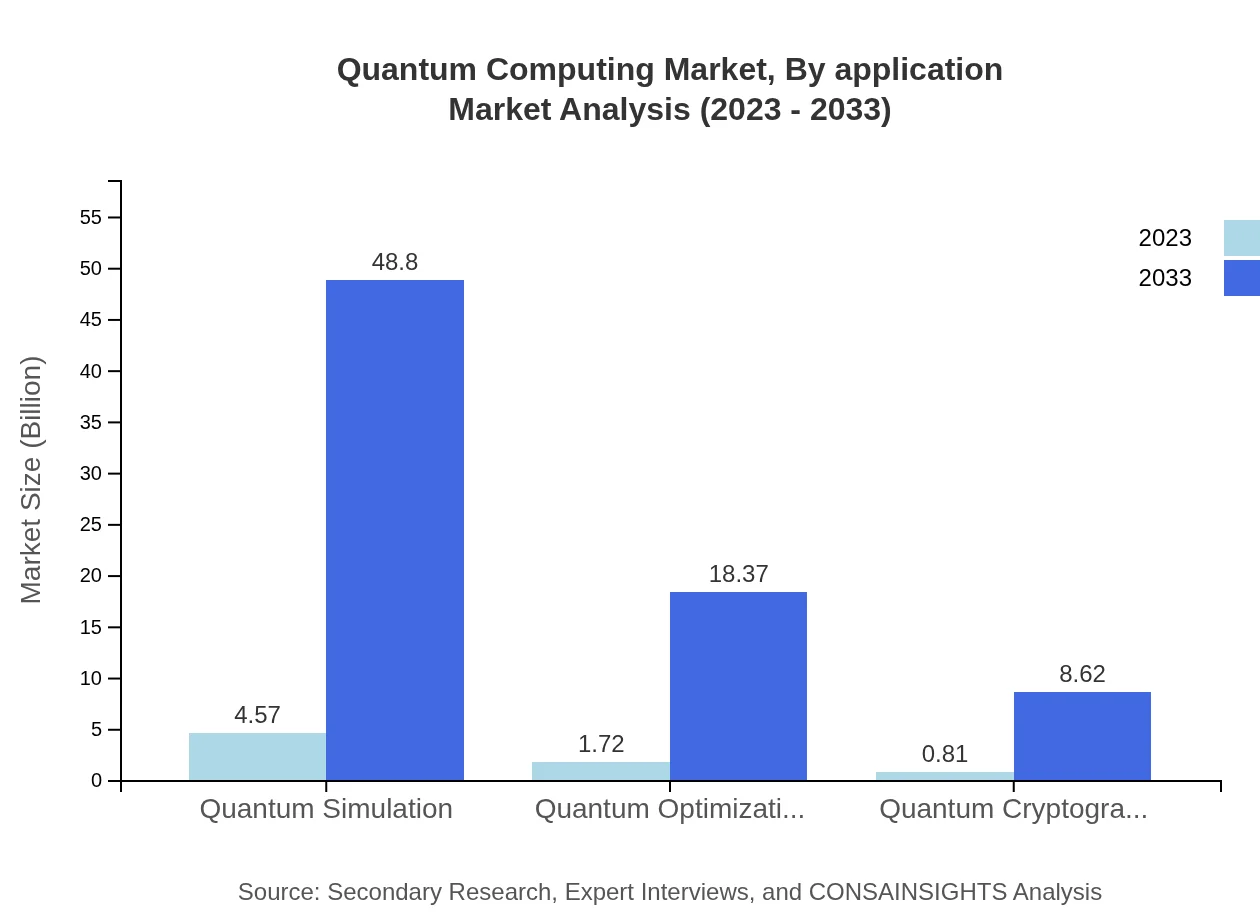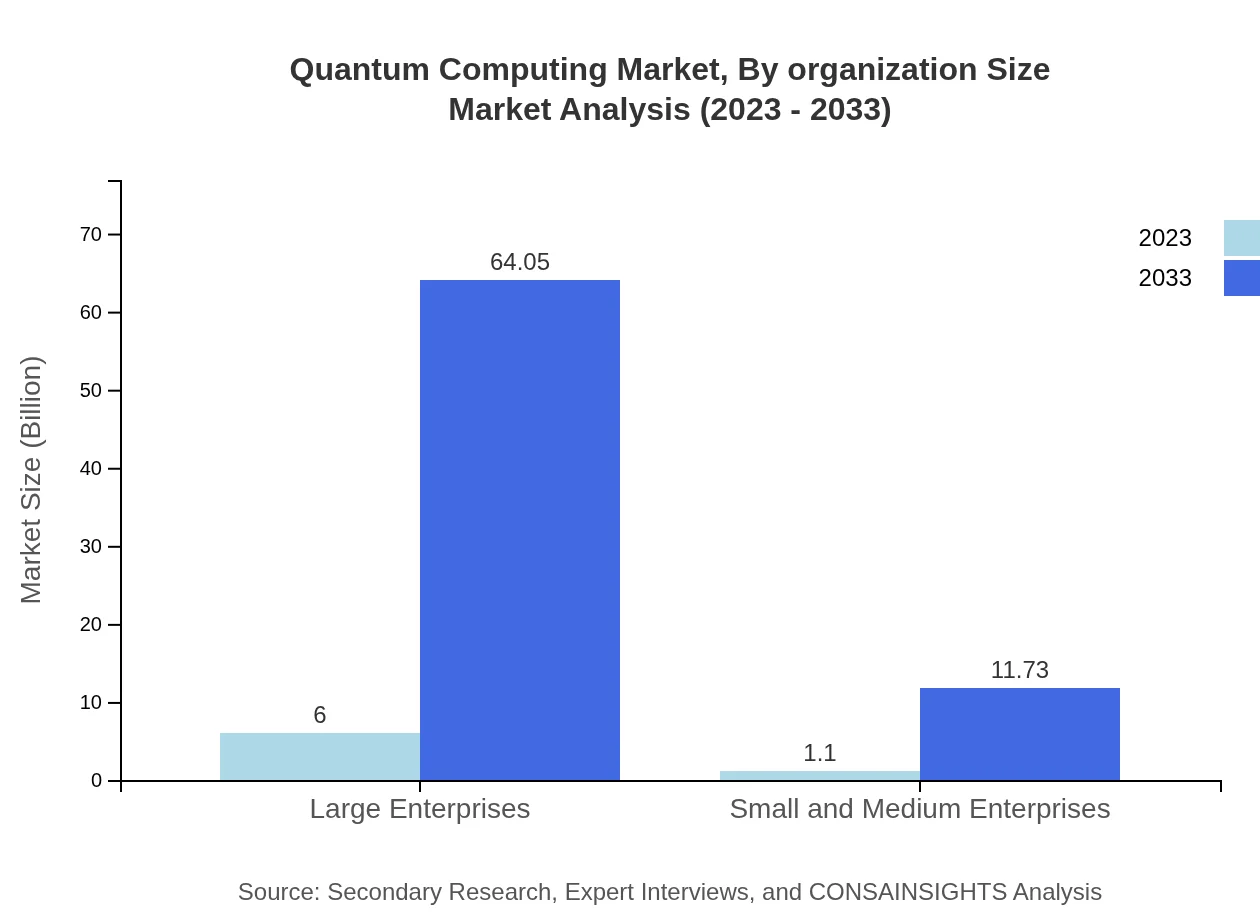Quantum Computing Market Report
Published Date: 31 January 2026 | Report Code: quantum-computing
Quantum Computing Market Size, Share, Industry Trends and Forecast to 2033
This report on the Quantum Computing market provides comprehensive insights into market size, growth forecasts, regional analysis, technology advancements, and company leadership over the forecast period from 2023 to 2033.
| Metric | Value |
|---|---|
| Study Period | 2023 - 2033 |
| 2023 Market Size | $7.10 Billion |
| CAGR (2023-2033) | 25% |
| 2033 Market Size | $75.79 Billion |
| Top Companies | IBM, Google, D-Wave Systems, Rigetti Computing |
| Last Modified Date | 31 January 2026 |
Quantum Computing Market Overview
Customize Quantum Computing Market Report market research report
- ✔ Get in-depth analysis of Quantum Computing market size, growth, and forecasts.
- ✔ Understand Quantum Computing's regional dynamics and industry-specific trends.
- ✔ Identify potential applications, end-user demand, and growth segments in Quantum Computing
What is the Market Size & CAGR of Quantum Computing market in 2023?
Quantum Computing Industry Analysis
Quantum Computing Market Segmentation and Scope
Tell us your focus area and get a customized research report.
Quantum Computing Market Analysis Report by Region
Europe Quantum Computing Market Report:
The European market is anticipated to expand from $2.07 billion in 2023 to $22.11 billion by 2033. The EU’s commitment towards quantum strategies, including the Quantum Flagship initiative, is catalyzing growth in innovations and collaborative projects.Asia Pacific Quantum Computing Market Report:
The Asia Pacific Quantum Computing market is projected to grow from $1.35 billion in 2023 to $14.41 billion by 2033, driven by increasing government initiatives in countries like China and India. The demand for quantum solutions in sectors like telecommunications and finance is substantiating this growth.North America Quantum Computing Market Report:
North America dominates the Quantum Computing market, with projections to escalate from $2.59 billion in 2023 to $27.64 billion in 2033. The presence of leading tech companies and extensive R&D investments are significant contributors, aimed at leveraging quantum capabilities in various applications.South America Quantum Computing Market Report:
In South America, the market is expected to rise from $0.20 billion in 2023 to $2.18 billion by 2033. Despite being a smaller market, developments in academia and partnerships between governments and technology firms are paving the way for quantum advancements.Middle East & Africa Quantum Computing Market Report:
The Middle East and Africa Quantum Computing market is set to grow from $0.88 billion in 2023 to $9.44 billion by 2033. Increased funding in educational institutions and international collaborations are expected to usher in new quantum technologies.Tell us your focus area and get a customized research report.
Quantum Computing Market Analysis By Technology
The market is segmented by technology, with superconducting qubits leading the segment with a current market size of $4.57 billion in 2023, growing to $48.80 billion by 2033. Trapped ions also have a significant presence, expected to rise from $1.72 billion to $18.37 billion within the same time frame, while topological qubits and quantum simulation technologies are increasingly capturing market interests.
Quantum Computing Market Analysis By Industry
In terms of industry applications, healthcare leads with a market size of $3.31 billion in 2023, projected to surge to $35.28 billion by 2033, reflecting the need for quantum computing in managing vast datasets. The finance segment follows, expected to grow from $1.49 billion to $15.86 billion, driven by improvements in risk analysis and high-frequency trading capabilities.
Quantum Computing Market Analysis By Deployment Model
Within the deployment model, the on-premises model dominates, with a market value of $6.00 billion projected to climb to $64.05 billion by 2033. The cloud-based quantum computing segment, though smaller at $1.10 billion in 2023, is anticipated to grow to $11.73 billion as businesses seek flexible deployment solutions.
Quantum Computing Market Analysis By Application
Quantum optimization applications are projected to rise from $1.72 billion to $18.37 billion by 2033, indicating the potential efficiency gains in supply chain logistics and resource management. Quantum cryptography will follow suit, growing significantly due to rising cybersecurity threats, from $0.81 billion in 2023 to $8.62 billion by 2033.
Quantum Computing Market Analysis By Organization Size
Customer segmentation by organization size shows a strong preference for large enterprises, with an expected growth from $6.00 billion in 2023 to $64.05 billion by 2033. Small and Medium Enterprises, although starting smaller at $1.10 billion in 2023, are projected to see encouraging growth to $11.73 billion as awareness and accessibility of quantum solutions increase.
Quantum Computing Market Trends and Future Forecast
Tell us your focus area and get a customized research report.
Global Market Leaders and Top Companies in Quantum Computing Industry
IBM:
A pioneer in quantum computing, IBM provides various quantum services and products, including the IBM Quantum Experience and Qiskit, facilitating widespread access to quantum technology.Google:
Google is known for its quantum supremacy achievement and continues to invest heavily in research through its Quantum AI division, focusing on enhancing quantum capabilities.D-Wave Systems:
D-Wave focuses on quantum annealing technology, providing access to quantum computing for optimization problems, which has unique applications in business and engineering.Rigetti Computing:
Rigetti Computing is developing innovative quantum platforms that integrate classical and quantum computing to create a hybrid architecture for various industry applications.We're grateful to work with incredible clients.









FAQs
What is the market size of quantum Computing?
The quantum computing market is projected to reach a size of $7.1 billion by 2033, growing at a robust CAGR of 25% from 2023 to 2033.
What are the key market players or companies in the quantum Computing industry?
Key players in the quantum computing industry include IBM, Google, Rigetti Computing, Microsoft, and D-Wave Systems, which are recognized for their advanced quantum technologies, research initiatives, and partnerships focusing on commercialization.
What are the primary factors driving the growth in the quantum Computing industry?
The growth in the quantum computing industry is driven by advancements in computational power, increasing investments in research, rising demand in sectors such as healthcare and finance, and the need for secure data processing solutions.
Which region is the fastest Growing in the quantum Computing market?
The North American region is poised to be the fastest-growing area, projected to expand from $2.59 billion in 2023 to $27.64 billion by 2033, reflecting substantial growth investment and innovation.
Does ConsaInsights provide customized market report data for the quantum Computing industry?
Yes, ConsaInsights offers tailored market report data for the quantum computing industry, allowing clients to receive insights specific to their business needs and market focus.
What deliverables can I expect from this quantum Computing market research project?
Expect comprehensive reports detailing market trends, regional analysis, competitive landscape, segment data, and forecasts, ensuring you have valuable insights to inform strategic decisions.
What are the market trends of quantum Computing?
Key trends include rising investments in quantum hardware, increasing collaboration among tech companies, growing applications in artificial intelligence, and heightened focus on quantum cybersecurity solutions.

